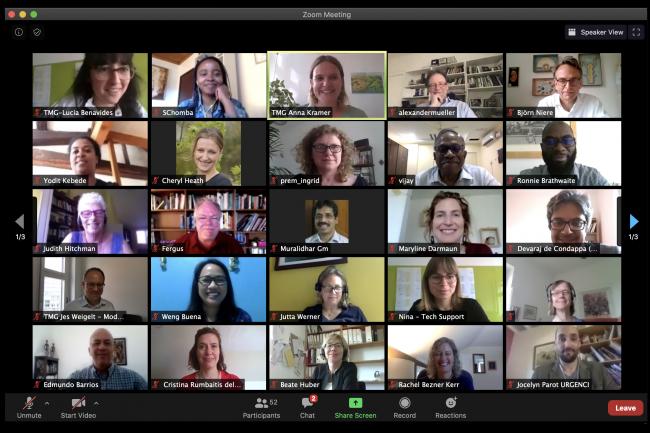The first day of the virtual consultations on Innovating Climate Change Adaptation through Agroecology considered climate change adaptation needs in the agricultural sector and the role of agroecology in responding to these needs.
In opening remarks, Björn Niere, German Federal Ministry of Economic Cooperation and Development (BMZ), emphasized the need for the agriculture and food sectors to adapt to the dramatic effects of climate change and urged embracing multi-dimensional approaches, such as agroecology, to address these complex effects.
Rowena Buena, MASIPAG, shared insights into her organization’s work, highlighting it is a Filipino farmer-led network working towards the sustainable use and management of biodiversity through farmers’ control of genetic and biological resources, agricultural production, and associated knowledge. She lamented that government support for agroecological measures is much lower than for conventional agriculture.
Alexander Müller, Managing Director, TMG Research, argued that adaptation strategies have to go beyond technological solutions and foster social innovation, gender equality, and strengthened communities.
During a panel discussion, Ronnie Brathwaite, UN Food and Agricultural Organization (FAO), highlighted positive impacts of agroecology for which considerable evidence exists, notably regarding multiple income streams that benefit the stability of livelihoods. He suggested that the reluctance to adopt agroecological approaches might not be the result of a lack of evidence, but due to vested interests favoring the status quo.
Fergus Sinclair, World Agroforestry Center (ICRAF), emphasized the need for scale and context specific metrics – ranging from plot and landscape scale to food systems scale – to show “precisely what works, for whom, where” and what return on investment can be expected in different settings.
Martin Herren, Biovision, presented the results of a meta-analysis showing climate change mitigation co-benefits of agroecological practices and a lack of research on the social and governance dimensions of agroecology.
Jocelyn Parot, URGENCI, said his organization focuses on local solidarity-based partnerships for agroecology and described agroecology as “a set of agricultural practices, a science, and a social movement.”
In closing statements, Niere reminded participants that the dialogue’s purpose is to develop key messages on the importance of agroecology for climate change adaptation. He urged participants to develop short, simple, understandable, and evidence-based messages to make the case for agroecology among policymakers.

















